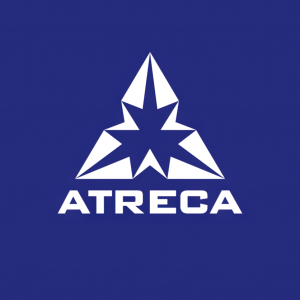Atreca to Host Webcast Presentation of Initial Clinical Data from Phase 1b Trial of ATRC-101
Atreca, Inc. (NASDAQ: BCEL) announced a conference call and webcast on July 29, 2021, to present initial data from its ongoing Phase 1b trial evaluating ATRC-101 in select solid tumors. ATRC-101, a monoclonal antibody derived from Atreca's unique discovery platform, is designed to engage the innate immune system for tumor destruction. The company plans to expand clinical trials for ATRC-101 in combination therapies later in 2021. The Phase 1b study is currently enrolling patients, aiming to provide insights into efficacy and safety.
- Conference call scheduled for July 29, 2021, to present ATRC-101 trial data.
- ATRC-101 shows robust anti-tumor activity in preclinical models.
- Planned expansion of ATRC-101 trials in combination with PD-1 inhibitors and chemotherapy.
- None.
Insights
Analyzing...
Conference call and webcast scheduled for Thursday, July 29th at 8:00 a.m. ET
SAN CARLOS, Calif., July 26, 2021 (GLOBE NEWSWIRE) -- Atreca, Inc. (Atreca) (NASDAQ: BCEL), a clinical-stage biotechnology company focused on developing novel therapeutics generated through a unique discovery platform based on interrogation of the active human immune response, today announced it will host a webinar to present initial data from the dose escalation portion of its ongoing Phase 1b trial evaluating ATRC-101 in select solid tumor types on Thursday, July 29, 2021, at 8:00 a.m. ET.
Conference Call and Webcast Information
The live webcast, including slides, can be accessed through the Events & Presentations section of the Company's website at https://ir.atreca.com/news-and-events/event-calendar. To access the conference call, please dial (800) 373-6606 (United States) or (409) 937-8918 (international) and reference the conference ID 2386207. An archived replay of the webcast will be available on the Company's website following the live event.
About ATRC-101
ATRC-101 is a monoclonal antibody derived from an antibody identified using Atreca’s discovery platform. ATRC-101 is believed to function through Driver Antigen Engagement, a novel mechanism of action in oncology. This mechanism involves systemic delivery of an antibody that, in preclinical models, engages the innate immune system to cause remodeling of the tumor microenvironment and drive T cell-mediated destruction of tumor cells. Atreca has identified the target of ATRC-101 as a tumor-specific ribonucleoprotein (RNP) complex. ATRC-101 has demonstrated robust anti-tumor activity as a single agent in multiple preclinical syngeneic tumor models, including one model in which PD-1 checkpoint inhibitors typically display limited activity. Further, ATRC-101 has been shown to react in vitro with a majority of human ovarian, non-small cell lung, colorectal, breast cancers and acral melanoma samples from multiple patients. Atreca initiated a Phase 1b first-in-human study of ATRC-101 in patients with select solid tumor cancers in early 2020. Clinical trials to evaluate ATRC-101 in combination with a PD-1 inhibitor and in combination with chemotherapy are planned for 2021, as well as in monotherapy dose expansion cohorts in the ongoing Phase 1b trial.
About Atreca, Inc.
Atreca is a biopharmaceutical company developing novel antibody-based immunotherapeutics generated by its differentiated discovery platform. Atreca's platform allows access to an unexplored landscape in oncology through the identification of unique antibody-target pairs generated by the human immune system during an active immune response against tumors. These antibodies provide the basis for first-in-class therapeutic candidates, such as our lead product candidate ATRC-101. A Phase 1b study evaluating ATRC-101 in multiple solid tumor cancers is currently enrolling patients. For more information on Atreca, please visit www.atreca.com.
Forward-Looking Statements
Statements contained in this press release regarding matters that are not historical facts are “forward-looking statements” within the meaning of the Private Securities Litigation Reform Act of 1995. These forward-looking statements include, but are not limited to, statements about our plans, objectives, representations and contentions and typically are identified by use of terms such as "continued," "anticipate," "potential," "expect," "believe," "planned," and similar words, although some forward-looking statements are expressed differently. These statements include those related to our strategy and future plans, including statements regarding the development of ATRC-101 and our preclinical, clinical and regulatory plans and the timing thereof, the availability and timing of data from monotherapy dose expansion cohorts in the Phase 1b trial and from combination cohorts evaluating ATRC-101 with a PD-1 inhibitor and with chemotherapy. Our actual results may differ materially from those indicated in these forward-looking statements due to risks and uncertainties related to the initiation, timing, progress and results of our research and development programs, preclinical studies, clinical trials, regulatory submissions, and other matters that are described in our filings with the Securities and Exchange Commission (SEC) and available on the SEC’s website at www.sec.gov, including in the “Risk Factors” and “Management’s Discussion and Analysis of Financial Condition and Results of Operations” sections of our most recently filed annual report on Form 10-K and quarterly report on Form 10-Q. Investors are cautioned not to place undue reliance on these forward-looking statements, which speak only as of the date of this press release, and we undertake no obligation to update any forward-looking statement in this press release, except as required by law.
Contacts
Atreca, Inc.
Herb Cross
Chief Financial Officer
info@atreca.com
Investors:
Alex Gray, 650-779-9251
agray@atreca.com
Media:
Sheryl Seapy, 213-262-9390
sseapy@w2ogroup.com
Source: Atreca, Inc.







